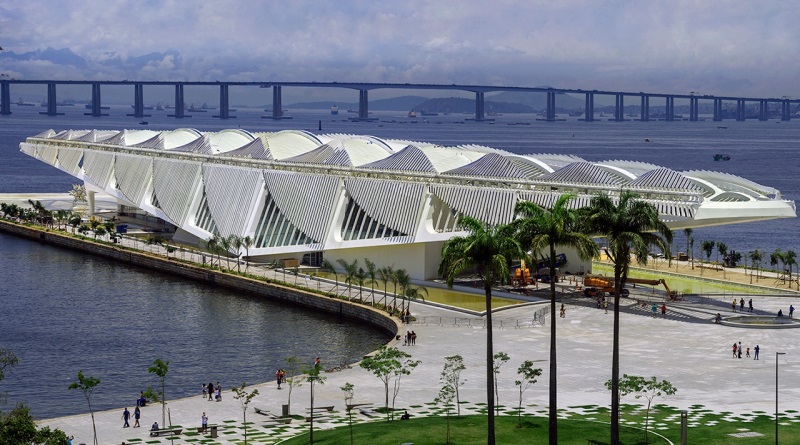The Tomorrow’s Museum, with the support of the Roberto Marinho Foundation, the Climate and Society Institute (ICS), the Brazilian Business Council for Sustainable Development (CEBDS), and its extended network of partners, launches this week a national movement for the quality of the debate and for the defense, promotion and development of propositional agendas for the country.
The “2018: Brasil do Amanhã” platform, which is intentionally organized one year after the majority elections, proposes to develop topics of national interest in a scientific way based on concrete data, evidence or academic findings, in order to improve the level of information, social engagement and mobilization in the period leading up to the process of democratic representation by voting.
On October 16th, the platform will be presented for the first time to a group of 400 guests from all segments of society. With the opening of Luiz Alberto Oliveira, curator of the Museum of Tomorrow, and mediation of the journalist Flávia Oliveira, the panel called “Paths of Democracy” is attended by Minister Herman Benjamin, of the Superior Court of Justice and the Superior Electoral Court; Marcos Nobre, a philosopher from Unicamp, a researcher at Cebrap and a political scientist; José Marcelo Zacchi, Secretary General of GIFE (Group of Foundations and Enterprises) and Ilona Szabó, political scientist and co-founder of the Igarapé Institute, followed by a debate.
The second part of the event begins with the first-hand presentation of the opening chapter of Globonews’ new series “History of the Future,” inspired by the eponymous book by journalist Miriam Leitão. With a premiere scheduled for October 19, the series includes ten programs presented by Miriam Leitão focusing on topics such as our biomes, education, health, technology, employment, demography, agriculture, city and democracy.
After the exhibition and inspired by the opening phrase of the program – “Brazil is prisoner of the immediate. It is urgent to look forward “- Miriam Leitão talks about the project” Stories of the Future “and discusses the possible paths and challenges that the country will face, in the company of Marcelo Furtado, executive director of the Believe Earth project (Instituto Alana ), mediated by Flávia Oliveira.
Over the next 12 months until the eve of the elections, 2018: Brasil do Amanhã will organize a series of events in specific formats aimed at communicating in an efficient, varied, inclusive and non-partisan manner the challenges and commitments required for the construction of a country best.
Throughout 2018 will be approached themes such as: Public Security; Forest; Science, R & D, Entrepreneurship and Innovation; Water and sanitation; Energy; Respect, Religion and Representativeness of Diversity; Food: Agriculture and Livestock; Circular Economy and new models; Public Management and Leadership; Transport; Education and Youth: Learning in disruptive and exponential times.
“We want the Museum of Tomorrow to be perceived by society as a space for discussion of urgent issues relevant to the future of the country in general. This is the social function of a museum that proposes to look at tomorrow, “says Ricardo Piquet, director-president of the Museum of Tomorrow.
“The exercise of democracy presupposes dialogue. This initiative is an opportunity to create a space of exchange on the guidelines that are important for the country, bringing the whole society to the broad and diverse debate, “Georgia Pessoa, manager of the Environment Unit of the Roberto Marinho Foundation.
“The 2018 elections will be fundamental to finally putting sustainability at the center of Brazil’s development policy,” said Ana Toni, executive director of the Climate and Environmental Institute. Society (ICS).
“CEBDS believes that transforming Brazil will not only depend on companies, a government or a political group, but on partnership among all of us, governments, companies and citizens. Our support for the “2018: Brasil do Amanhã” platform is a reflection of this vision. The country has the potential to lead the transition to a new tomorrow, where the sustainability agenda is at the center of the debate, “says Marina Grossi, president of the Brazilian Business Council for Sustainable Development (CEBDS).

